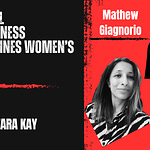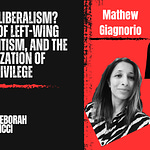A Further Inquiry hosted a podcast to discuss Canada’s online harms bill and Scotland’s new Hate Crime Act. The podcast was hosted by the Chief Editor of A Further Inquiry, Mathew Giagnorio, and the Cultural and Political Editor of AFI, Khadija Khan. They were joined by British legal policy professional and charity manager Tehmina Kazi, a veteran in the Canadian Intelligence Community, and former CSIS senior strategic analyst Phil Gurski. Both speakers discussed the detrimental impacts of a pervasive censoring culture that exists in both the UK and Canada under the pretence of safeguarding people's sensitivities.
Though it was approved three years ago, the Hate Crime and Public Order (Scotland) Act took effect on April 1, 2024. The Act has redefined "stirring up racial hatred" by including sexual orientation, age, handicap, religion, transgender identity, and "variations in sex characteristics."
Such vast generalization has rendered the act's ramifications extensive and alarming. It applies to everything said anywhere, including conversations at the dinner table. According to promotional materials from the Scottish government, "words can hurt and can have a detrimental effect on how someone feels about themselves.” Such a statement makes it quite evident that the protection of people's delicate sensibilities is the bill's primary priority rather than their safety.
Tehmina Kazi went into great depth about the harsh consequences of this measure and issued a dire warning that it would have a chilling impact on free expression. She also talked about the worries that extremists would use the law as a weapon to attempt to criminalize, or at the very least, muzzle, legitimate debate on important matters. She cautioned that the case of J.K. Rowling has turned into a tried-and-true illustration of this ominous phenomenon, which has stifling implications for free expression.
It is pertinent to mention that Scotland’s blasphemy law has been repealed by this Act. But it seems that a modern blasphemy code has been introduced under the pretext of protecting the feelings of individuals.
As ominous as this may sound, this is not an isolated incident. Canada has introduced Bill C-63, the Online Harms Act, which has expanded Canada’s already existing hate speech laws.
With its claims to establish some order in the digital realm, the bill has been criticized for its vast ambiguity around matters related to freedom of speech.
A new government agency named the Digital Safety Commission will monitor all social media companies. With limitless powers, the Digital Safety Commission has the authority to prevent social media companies from accessing any information, carry out investigations, hold private hearings, and adjudicate matters in an absolute manner.
Phil Gurski discussed that it is reasonable to worry about shielding children from sexual exploitation on social media. There have been constructive attempts in place, but additional discussions are needed to resolve these problems. He underlined that the majority of Western democracies have already outlawed hate speech for decades and that anything that sexually exploits minors has previously been the subject of legal action, which should be considered a significant advancement.
He continued to argue that the Online Harms Act may shield people from certain types of information, but clamping down on freedom of expression in the name of protecting people’s feelings is antithetical to anything that safeguards our society's democratic foundation.
He went on to say that it is extremely problematic because the idea of substantial proof has been removed from the conversation and that the decision of whether or not the stated or written comment qualifies as bigotry has been left to the conscience of the purported victim. He emphasized that the thought police hiding behind such draconian legislation would gravely jeopardize free speech and undermine the hard-earned freedoms of the West.
Both speakers concurred that, at a time when both nations are experiencing an unwarranted overall security problem, law enforcement in both Britain and Canada is bracing for an additional and needless strain. Such hyperbolic initiatives are ill-advised and serve as a diversion from the pressing problems facing our societies.













Silenced Sovereignty